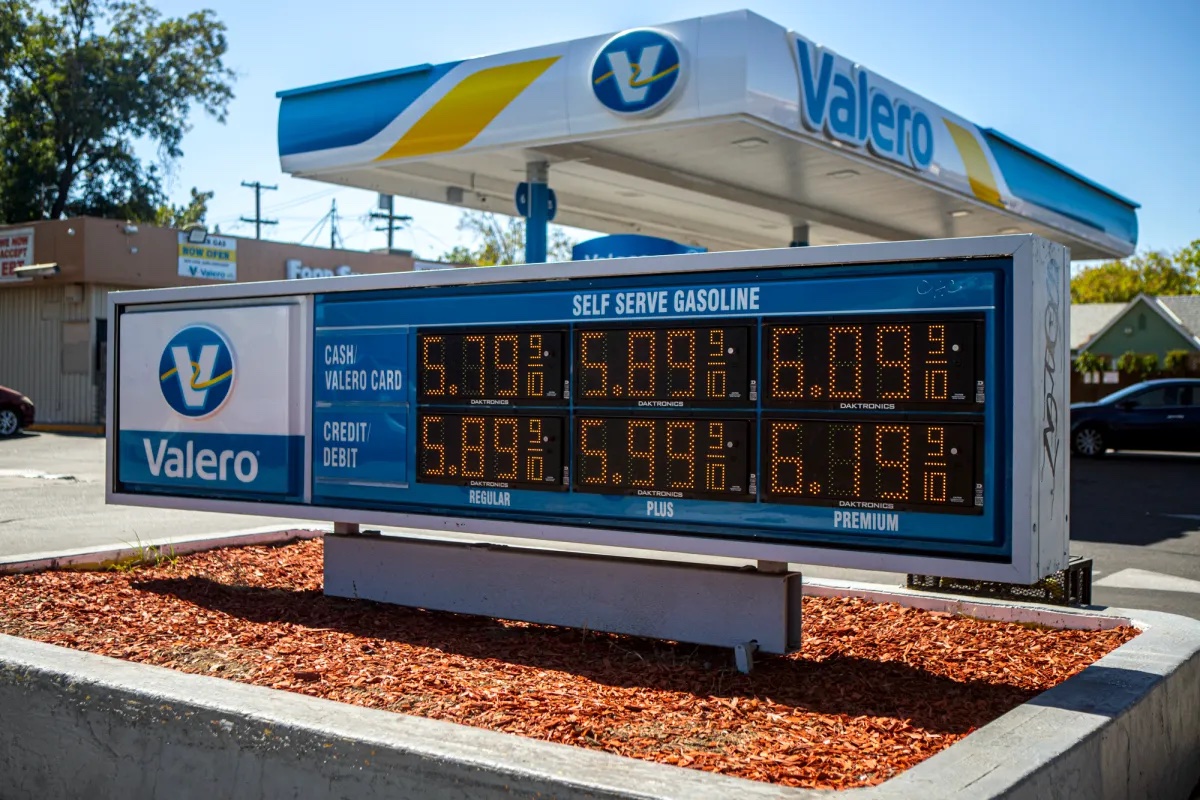Remember when Gov. Gavin Newsom and state lawmakers struck a deal a couple of months ago to send millions of California taxpayers between $200 and $1,050 to help cover the rising cost of living?
Well, a week from today, the state is set to begin depositing the first round of payments in Californians’ bank accounts. And, although some taxpayers likely won’t see their refunds until January 2023 — and some of the state’s most vulnerable residents won’t get checks at all — for many people the timing will be opportune.
That’s because gas prices are rising again after nearly 100 days of decline nationwide. The uptick is particularly pronounced in California, where the average price of a gallon of regular shot to $6.18 on Thursday, up from $6.04 just the day before and $5.52 a week ago, according to AAA.
- Doug Shupe, corporate communications manager for the Auto Club of Southern California, told the San Diego Union-Tribune: “In my time with the Auto Club, at AAA, I have not seen such quick volatility and changes.”
The rapid increase is largely due to “planned and unplanned refinery maintenance issues” that “have tightened fuel supply” in California, Anlleyn Venegas, also with the Auto Club of Southern California, told the Los Angeles Times. On Thursday, U.S. Deputy Secretary of Energy David Turk discussed the refinery challenges with energy directors from California, Washington, Oregon and Nevada and urged them “to stress to industry the importance of safe operations to avoid further disruptions and the need to pass tangible savings on to consumers,” according to the energy department.
Supply may also be restricted nationally as Hurricane Ian pounds Florida and other states and threatens to limit gas distribution “due to a lack of electricity and flooded roads and highways,” according to AAA. On Thursday, Gov. Gavin Newsom deployed California emergency management and mass care specialists to Florida to help respond to the storm’s destruction.
In a slew of press releases this week, legislative Republicans blamed Democrats for the soaring gas prices.
- Assembly Republican Leader James Gallagher of Yuba City said in a Thursday statement: “Another predictable forecast in California today: Sunny with high cost of gas and downward pressure on your disposable income. Paying more than $5 or $6 for a gallon of gas is absurd. The Governor and the Democrat super-majority cannot really expect Californians to accept this as the new normal.”
- Gallagher also said “Republicans stand ready and united to suspend the 54-cent gas tax to provide real immediate relief,” a strategy that Democrats have shot down on numerous occasions. California’s fuel excise tax rate increased by nearly 3 cents per gallon on July 1.
The state Assembly in June formed a select committee to investigate why California’s gas prices are so much higher than the rest of the country’s. The committee has met just twice since then, according to its website.
- Assemblymember Jacqui Irwin, the Camarillo Democrat who leads the panel, told me in a statement: “The Select Committee on Gasoline Supply and Pricing has been investigating long term solutions to address California’s high gas prices. The Committee will be releasing a report in the next few weeks with recommendations, based on testimony from numerous stakeholders and industry experts, for the Legislature to consider in the upcoming session.”
Meanwhile, the advocacy group Consumer Watchdog on Tuesday asked Newsom to declare a special legislative session to investigate why Californians are paying nearly $2 more per gallon at the pump than other American drivers. Consumer Watchdog also suggested the state should enact a windfall profits tax on the oil and gas industry, which it said has “declared war on the state of California and is raising prices unreasonably to punish the public and lawmakers for enacting tough new (environmental) laws.”
Kevin Slagle, vice president of strategic communications for the Western States Petroleum Association, described the allegations as “ridiculous.”
- Slagle told me: “Despite bans, mandates and other policies that can increase energy costs, our members are doing all they can to produce and refine more energy and fuels to keep up with demand. Keep in mind, the first $1.28 per gallon we all pay at the pump today goes to taxes, fees and regulatory programs imposed by the state. Our policy environment matters when it comes to energy costs. And our policy environment is getting more restrictive and costly every year.”
